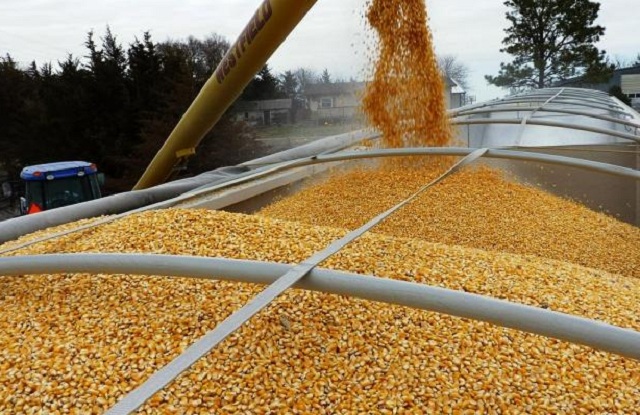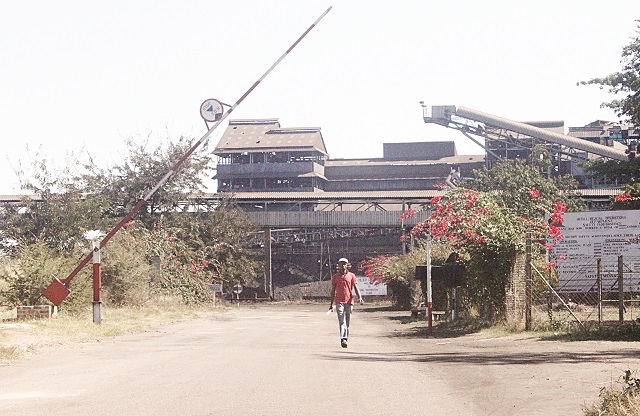EDITORIAL COMMENT: Ban on grain imports good news for country

The Government has for a long time demonstrated a strong resolve to ensure that the country regains its status of food self-sufficiency.
It has implemented a range of measures to that effect. Key among them are the provision of agricultural inputs, building of dams, provision of irrigation facilities and market access. The land reform and redistribution programme should be viewed in that ambit as well.
But it has not been plain sailing, we must say. From time to time droughts have come in the way, so have floods. Pests have come in the way, so have financial constraints. These have hampered the ability of the country to feed itself and reap more for export.
The command agriculture system that was launched last year to complement existing initiatives such as the Presidential Well-Wishers Special Agricultural Inputs Scheme have, however, helped boost food output this year, estimated to reach 2,7 million tonnes of maize and small grains.
The State-led programme was not going to be a success if farmers were going to realise record harvests but be stuck with silos brimming with maize. To some extent this was a genuine concern, if not fear, among some farmers that the prevailing economic conditions were going to compromise the Government’s capacity to buy the bumper maize harvest.
We are delighted that the Government has put paid to these concerns after the Deputy Minister of Agriculture, Mechanisation and Irrigation Development, Cde Davis Marapira, disclosed, as we reported yesterday, that the Grain Marketing Board (GMB) has secured $200 million to buy grain from growers.
“The US$200 million war chest that GMB has to buy maize from our local farmers came from Treasury and private sources and we hope the purchasing of maize to intensify from mid-July (next month) when the maize moisture content would have gone down to acceptable levels.
“GMB will buy maize from local farmers from the funds they have and more money will be available to purchase locally produced maize because the Grain Millers’ Association of Zimbabwe will in turn purchase at least 800 000 tonnes of maize from GMB this year,’’ he said.
At a producer price of $390 per tonne, the $200 million availed so far is enough to buy exactly 512 820 tonnes of maize and small grains that command the same price with the larger cereal. If the Strategic Grain Reserve was totally empty, the money was enough to fill it up as the lifeline silo must have 500 000 tonnes of maize. As of now, said Cde Marapira, it has 180 000 tonnes, thus 320 000 more tonnes are needed.
The outlay will put $200 million into the hands of farmers in the next three months through grain purchases alone. It does not include the $980 million that farmers will earn through tobacco sales this year. It does not include the millions that cotton will pump in. These are huge revenue streams that will revive rural livelihoods after years of indigence caused by frequent droughts.
Maize farmers are surely happy that the money to pay them for their deliveries is already there even before their crop is ready for the market. What the Government has done inspires confidence in agriculture, which is very critical to attracting investment into any industry. Every investor wants certainty before they invest their money and time in an undertaking. Our grain farmers have had it all this year.
The involvement of the Government augurs well for the national thrust to not only fight hunger and malnutrition, but to actually defeat them. We therefore want to urge the Government to intensify its support schemes.
With a record harvest in the bag, there is no need for anyone to import any grain hence the Government has not been issuing permits to bring maize from abroad.
Said Cde Marapira: “Government stopped issuing Grain Import permits about four months ago and no maize imports are allowed at our borders and the only way that maize can be brought into the country will be through smuggling but we now have advanced modern scanning equipment at our points of entry that will detect that.
“The only way maize may be brought into the country is if officials manning our ports of entry are bribed to allow the maize through but that is something that we do not have control over otherwise Government has banned grain imports into the country.’’
This is good news if one considers the tremendous saving to be realised — $500 million. But the full impact goes beyond dollars and cents.
Jobs have been created due to Government support for agriculture from the farm itself to input suppliers, from transporters to grain processors.
In addition, the sense of security among our people and the Government arising from the knowledge that our silos, and bellies, are full is immeasurable.











Comments